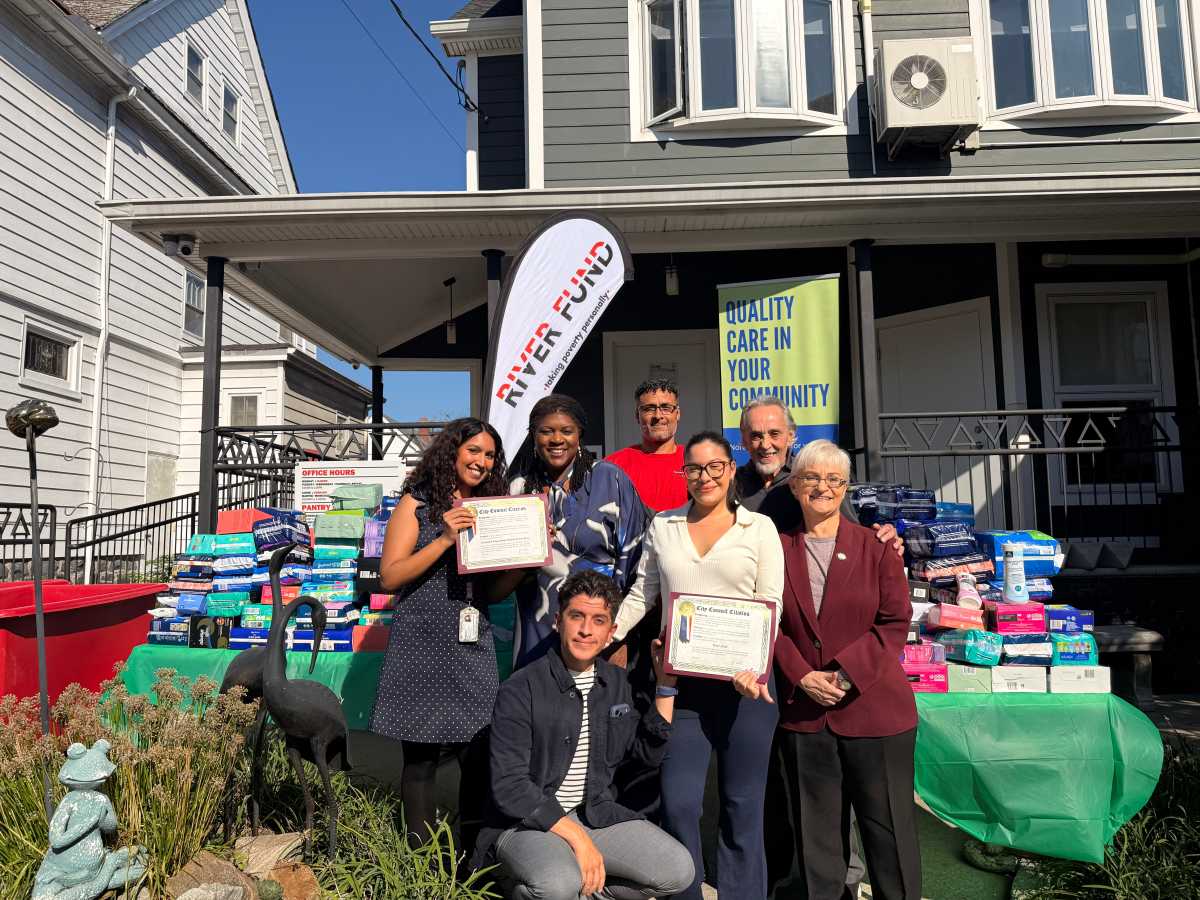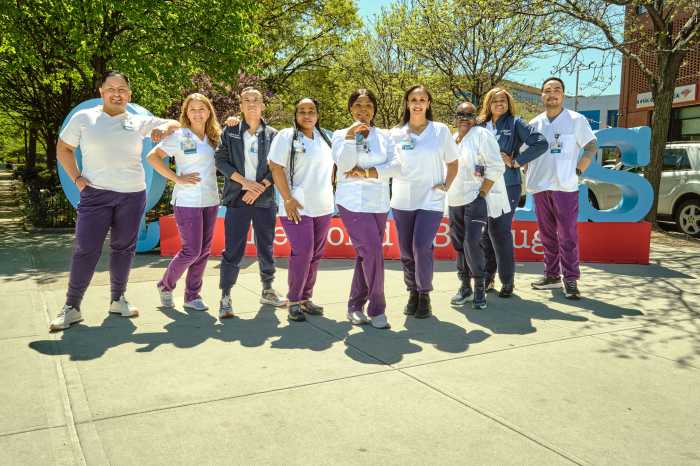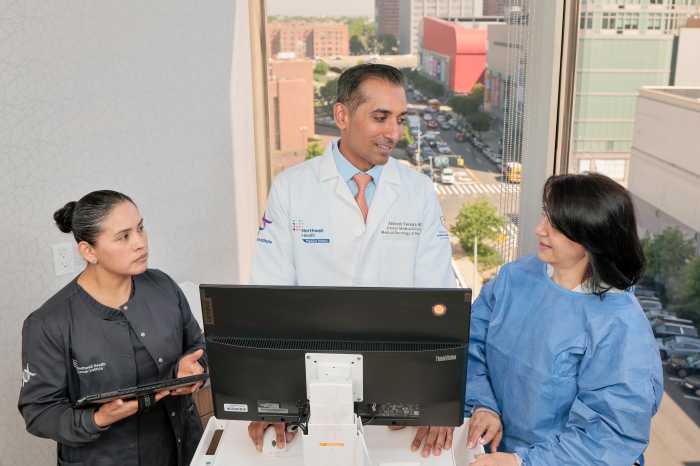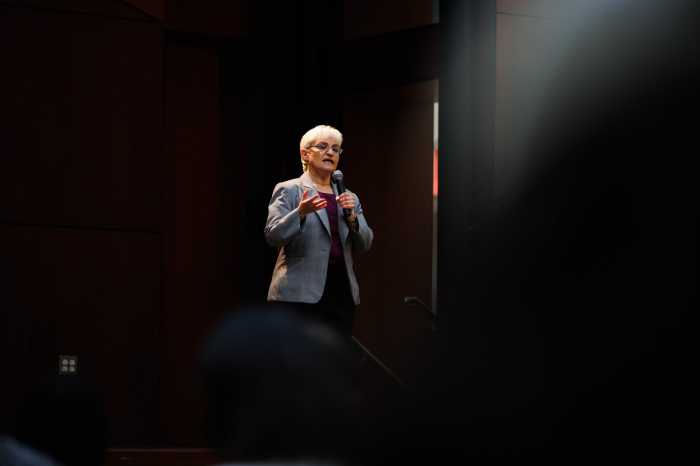Long Island Jewish Forest Hills Hospital partnered with the River Fund to distribute more than 14,000 feminine hygiene products for women in the southeast Queens community earlier this month.
One in five women suffers from period poverty, where they simply cannot afford to buy feminine hygiene products, according to the hospital.
“Our team at Long Island Jewish Forest Hills is deeply connected to the Queens community, and we believe in showing up for one another in meaningful ways,” said Long Island Jewish Forest Hills Hospital President Lorraine Chambers Lewis. “Donating feminine hygiene products is about more than meeting a basic need, it’s about standing with women and girls who deserve dignity, comfort, and care. I’m incredibly proud of our team members for coming together year after year to support menstrual equity and help make a real difference right here at home.”
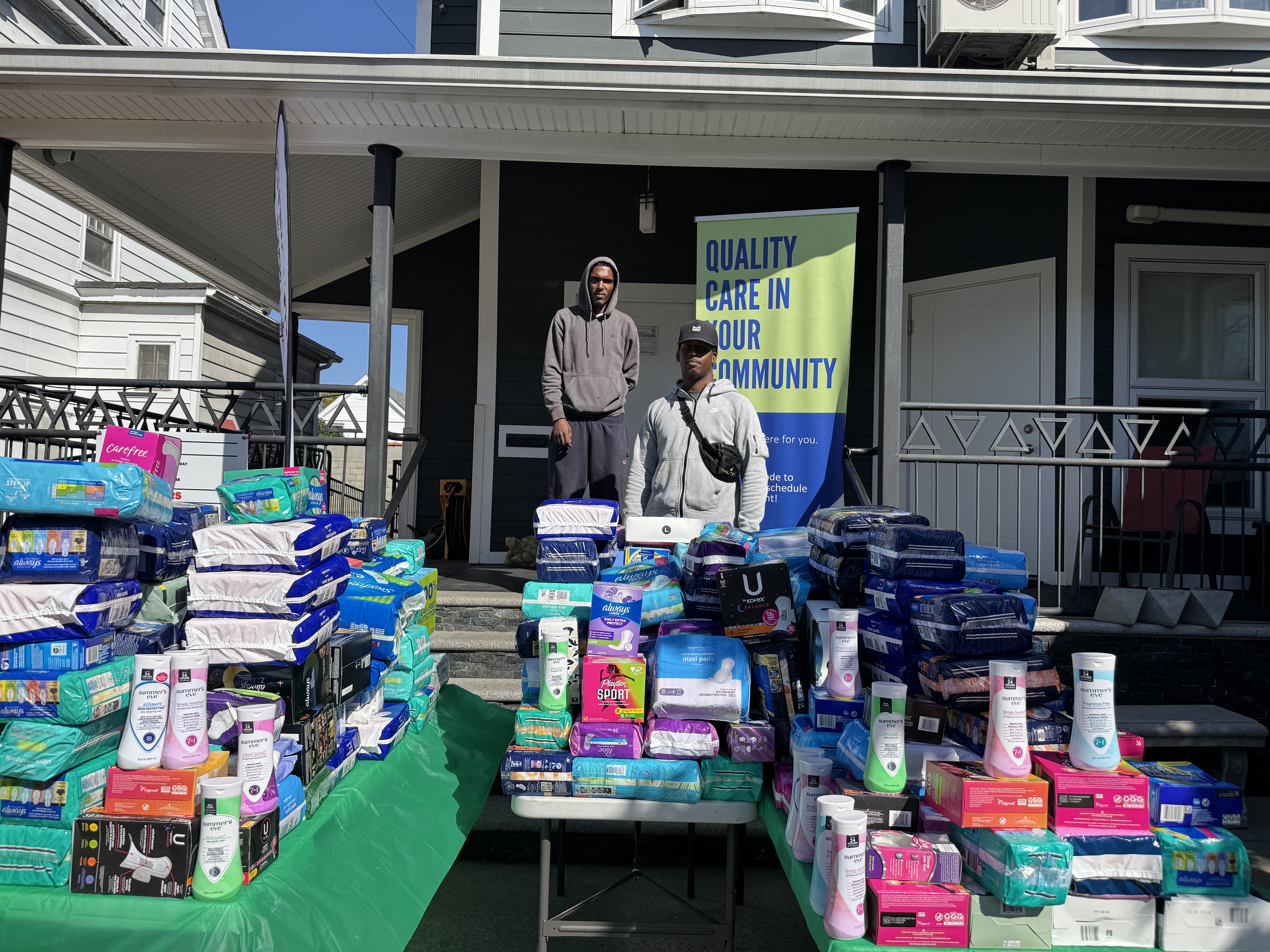
The LIJ Forest Hills team members purchased and collected the feminine hygiene products and delivered them to the River Fund at 89-11 Lefferts Boulevard in Jamaica for distribution on Oct. 3, where they were joined by Council Member Lynn Schulman.
“As chair of the City Council’s Health Committee, I know that access to basic health necessities like menstrual products is a matter of dignity, equity, and public health,” Schulman said. “I am proud to partner with Northwell LIJ Forest Hills and River Fund to ensure that no New Yorker has to choose between paying for essential items and caring for themselves or their families.”
Nearly 22 million women living in poverty in the United States cannot afford menstrual hygiene products, a problem known as period poverty, and 21% reported that they were unable to afford these products every month.
“Menstrual products are not luxuries, they are necessities,” said Stancy Saji, program manager, Government and Community Relations, LIJ Forest Hills. “By working with the River Fund, and with the support of Councilwoman Schulman, we are making sure community members have access to these critical items while helping to remove the stigma that too often surrounds this issue.”

